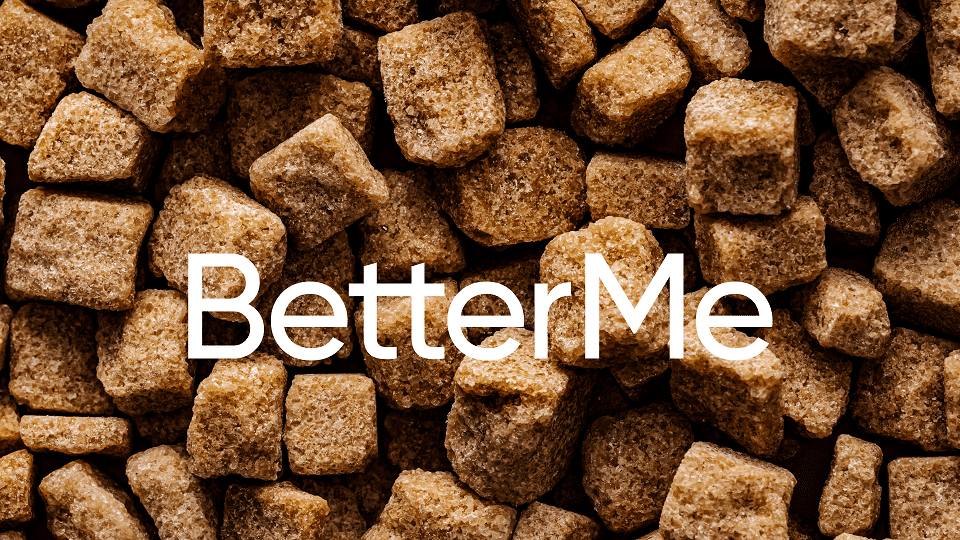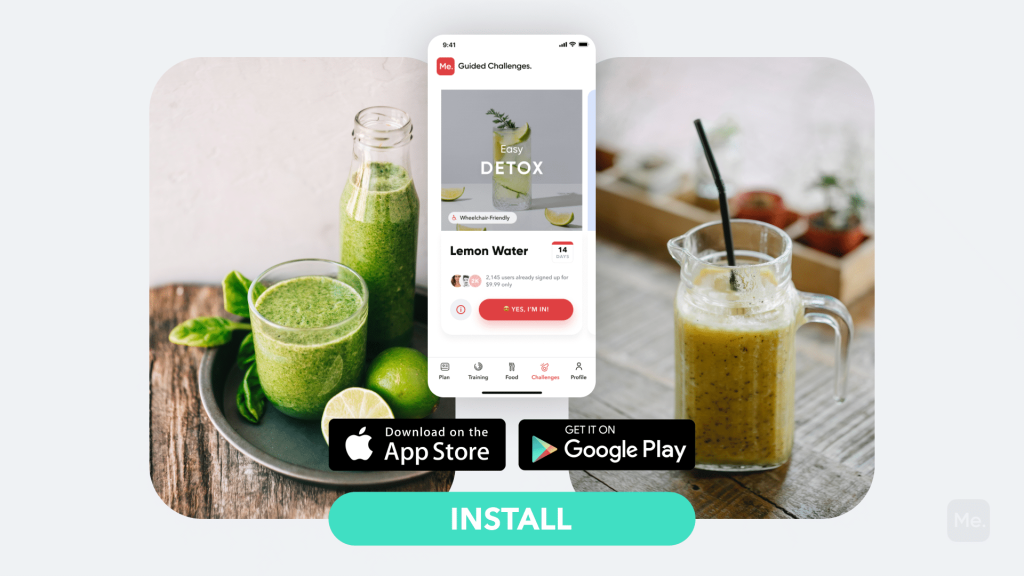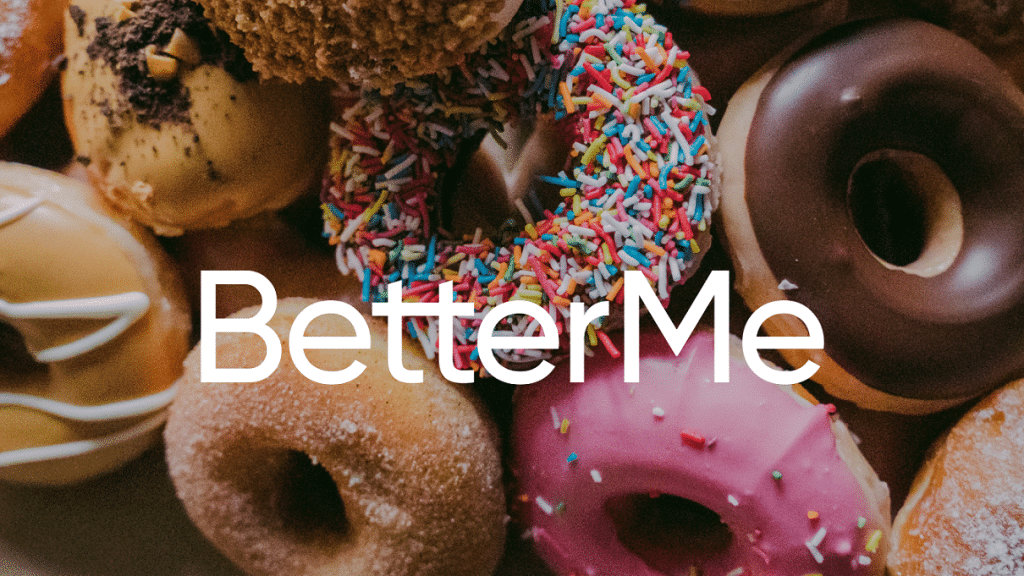Detoxes are one of the latest wellness trends. Many people turn to juicing, fasting, or cleansing in an effort to lose weight or improve their overall health. Unfortunately, these types of methods can be extreme and often fail to deliver purported benefits. The sugar detox, however, is sustainable and good for you. It involves reducing your added sugar intake and eventually giving it up completely. The benefits of a sugar detox are plentiful and far-reaching, according to science.
Get your personalized
meal plan!
What Are The Benefits Of A Sugar Detox?
Research studies have linked a high added sugar intake with various medical conditions, including obesity, diabetes, and heart disease, as well as poor dental health (14). Reducing your sugar intake can have the following benefits:
Protection Against Chronic Disease Development
According to studies, people who consumed energy drinks were forty percent more likely to develop an inflammatory disease (7). Since these kinds of diseases are often linked to obesity and other conditions that a sugar detox helps prevent, this is just one example of how reducing your sugar intake can protect you against chronic diseases.
Improved Energy Levels During The Day
When you’re tired, it’s difficult to make good decisions for yourself and be productive throughout the day. Your concentration and focus suffer as well. When you cut back on your sugar intake, however, you’ll experience greater energy levels during the day because refined sugars provide temporary bursts of energy but never last long enough to fuel you through your workday or workout sessions (8).
Read More: Weight Loss Detox: Should You Be Buying Into The Hype Of Detox Diets?
Weight Management
A sugar detox plan is all about reducing your sugar intake to improve your overall health. You likely won’t experience quick weight loss, either; rather, you’ll achieve sustainable weight management by making healthier choices. When you choose foods with natural sources of sugars instead of processed carbohydrates and refined sweeteners, like candy bars or soda pop, you ensure that you get enough energy to fuel your active lifestyle without spiking your blood sugar levels (4).
Improve Your Overall Health
As mentioned above, a diet high in added sugars can lead to obesity and other chronic conditions. According to research studies, the risk for metabolic syndrome was twice as great among people who consumed at least 20 percent of their calories from added sugars compared with those whose intake of added sugars did not exceed 10 percent of their daily calorie intake. The risk for several chronic conditions was also greater among people who frequently ate foods that have a high glycemic index, which again is another reason to reduce your sugar intake (12).
Is A Sugar Detox Plan Right For You?
A sugar detox plan may be right for you if you’re overweight or obese and want to lose weight or maintain your desired body weight by limiting refined sugars in your diet.
A sugar detox plan might be right for you if you want to improve your overall health by reducing the number of processed carbs and sweeteners in your diet.
If you find yourself eating more sweets than usual throughout the day, especially during certain times of the day like after dinner or before bedtime, then a sugar detox may be right for you. A sugar detox plan might also be a good idea if you want to be more mindful of the types of foods you eat, as well as how much energy those foods provide your body.
If you wish to cinch your waist, tone up your bat wings, blast away the muffin top – our fitness app was created to cater to all your needs! BetterMe won’t give excess weight a chance!
What Is Your Sugar Consumption Like?
While it’s easy to calculate your daily calorie intake or the number of grams of carbohydrates and fat that you consume each day, it’s a little trickier to tally up your daily sugar consumption.
Besides obvious sources like candy, cake, ice cream, and cookies, added sugars lurk in surprising places such as salad dressings or even spaghetti sauce. Furthermore, research studies have found that many people who think they’re making healthier food choices are often still consuming too much added sugar (2).
What Are The Side Effects Of A Sugar Detox?
It’s beneficial, but not easy, to cut back on your sugar consumption. You may experience unpleasant symptoms for a while before you get used to a sugar-free diet. Some of the side effects of cutting added sugar from your diet include:
Depressed Mood
If you’ve ever had a sugar crash, then you know how difficult it is to get through the day when you have no energy. Low blood sugar levels can cause feelings of irritability and depression as well as fatigue and shakiness (9). Remember to eat enough carbohydrates from whole grains, fruits, vegetables, and legumes to help avoid this feeling.
Anxiety
It’s easy to feel overwhelmed or out of control if your mood swings between feeling energetic and exhausted throughout the day. Some people even experience panic attacks during low blood sugar episodes. These symptoms will likely subside over time as long as you stick to a healthy diet that includes natural sources of sugars rather than processed carbohydrates and refined sugars (6).
Cravings
You may find yourself craving sweet foods if your body misses the extra fuel from refined sugars. The key here is not to give in to temptation or you will feel like you’ve failed before you even started cutting back on your sugar intake. Eating fruit may help satisfy that sweet craving.
Fatigue
If you’re used to having energy throughout the day, it can be tough when that all disappears. Initially, you may find yourself dragging by 3 p.m., and if this persists for more than two weeks then it might be time to adjust your diet or schedule some naps in the afternoon. Again, make sure you are eating enough complex carbohydrates throughout the day to provide the energy your body needs.
Read More: Detox Smoothies To Shed Belly Weight: Supercharging Your Weight Loss With Vitamin-Packed Beverages
Light-Headedness
Feeling off-balance is a common sensation when blood sugar levels drop too low (5). If this happens often while following a sugar detox plan, then try having a light snack with natural sugars (like fruit) before going out or performing tasks that require concentration and coordination such as driving, crossing busy streets, operating machinery, or playing sports.
Changes In Sleep Pattern
When blood sugar levels are unstable throughout the day, it’s common for people suffering from this issue to have trouble falling or staying asleep at night (11). If this occurs, try having some yogurt before bedtime instead of sugary snacks or drinks.
Withdrawal Symptoms
Though most people don’t realize it, some of the symptoms they experience when quitting caffeine are very similar to the effects of quitting sugar. Quitting refined sugar or processed carbohydrates may result in headaches or cravings much like when you try to quit caffeine (relieving these symptoms is the main reason why people start eating sugary snacks again).
Cognitive Issues
You may find it difficult to concentrate when you quit sugar. That’s because sugar provides fuel for your brain. When you cut back on sugar, the level of glucose in your body decreases and this can result in slower cognitive function and trouble focusing or paying attention (1). You’ll need to get that fuel from other carbohydrate sources now, so increase your intake of fruits, vegetables, and whole grains.
How To Do A Sugar Detox
Once you’ve committed to go sugar-free, there are some tips that can make your detox easier and more bearable.
Make A Sugar Free Plan
Create a detailed plan to help you avoid slipping into old habits and sabotaging your sugar detox. Try to map out all of the situations in which you typically consume sugar so that you can think of alternative solutions such as having healthy snacks at work or scheduling exercise before going over to a friend’s house for dessert.
A 7-day sugar detox meal plan is great for a beginner, as it seems more achievable than a 21-day sugar detox meal plan. In this plan, include what you can eat, and in what quantities. Being as clear as possible makes it more likely for you to stick to the plan.
BetterMe is your fast-track ticket to a long-lasting weight loss! Tailor your fitness journey and maximize your results with just a couple of swipes!
Eat More Complex Carbohydrates
Your body and brain still need energy in the form of glucose, so make sure you are getting enough in the form of complex carbohydrates. Increase your intake of whole grains like brown rice, oats, and whole-wheat products. Eat more fruits and vegetables. Include some beans and lentils.
Eat More Fat
Healthy fats are the best way to keep blood sugar levels stable throughout the day. Also, eating healthy fat helps slow down digestion so that you don’t experience sharp spikes in insulin when you eat (3). Include nuts, avocado, or coconut oil to your sugar detox meal plan for an extra burst of energy without refined sugars.
Swap Sweetened Beverages With Water
If you’re used to drinking sodas or other sugary beverages throughout the day, then this will be one of the most difficult parts of a sugar detox plan. Try replacing these drinks with plain water or herbal tea. If you can’t stand the taste of water by itself, try adding some lemon juice or cucumber slices to add a hint of flavor.
Don’t Skip Meals
Eating several small meals throughout the day is one of the best ways to keep blood sugar levels stable without spiking insulin levels. This will help prevent any cravings because your body won’t experience any crashes or withdrawals from refined carbohydrates and sugars.
Eat More Protein
Protein has the highest satiety factor out of all three macronutrients (protein, fat, and carbs) and because it digests slowly, it’s also great for managing blood sugar throughout the day (10). If you struggle with snacking between meals, try adding some lean meats like chicken or turkey to your lunch and dinner. You can also add protein powder to smoothies or plain yogurt for a quick and easy snack that will help regulate your blood sugar levels all day long.
Replace Desserts With Fresh Fruits
If you’re craving something sweet after dinner, try eating fresh fruit instead of sugary desserts like ice cream or pie. If you do choose to eat sweets during the sugar detox, then make sure that it’s no more than 100 calories and stick to fruits like berries that are lower in sugar compared to other options.
Manage Stress
Like caffeine withdrawal, stress can make it difficult for people dealing with sugar detox because they may find themselves eating sugary snacks out of boredom rather than hunger. To help manage stress levels, try taking up meditation or yoga if you don’t already have an exercise routine in place. Also, try scheduling some time to relax each day either by watching your favorite show or getting a massage.
Get Enough Sleep
If you don’t get enough sleep, then your hormones are going to be out of whack, which could cause sugar cravings (13). Aim for 7-9 hours of sleep per night or try taking a 20-minute power nap if you’re feeling drowsy during the day.
The Bottom Line
A sugar detox plan isn’t just about eating less sugar. It’s also about giving your body time to reset without added sugars that can have negative effects on mood and cognitive function. By avoiding both physical and mental side effects, you’ll feel better than ever once the detox is over! Then maybe you’ll find you can continue to limit added sugars as part of your healthy eating pattern.
DISCLAIMER:
This article is intended for general informational purposes only and does not address individual circumstances. It is not a substitute for professional advice or help and should not be relied on to make decisions of any kind. Any action you take upon the information presented in this article is strictly at your own risk and responsibility!
SOURCES:
- Acute Hypoglycemia Impairs Executive Cognitive Function in Adults With and Without Type 1 Diabetes (2013, diabetesjournals.org)
- Added Sugars (2018, heart.org)
- Dietary fats and prevention of type 2 diabetes (2008, nih.gov)
- Dietary sugars and body weight: systematic review and meta-analyses of randomised controlled trials and cohort studies (2013, bmj.com)
- Dizziness (2019, diabetes.co.uk)
- Generalized Anxiety Disorder and Hypoglycemia Symptoms Improved with Diet Modification (2016, nih.gov)
- Health Effects and Public Health Concerns of Energy Drink Consumption in the United States: A Mini-Review (2017, nih.gov)
- How Does Too Much Sugar Affect Your Body? (2019, webmd.com)
- Is Your Mood Disorder a Symptom of Unstable Blood Sugar? (2019, umich.edu)
- Protein, weight management, and satiety (2018, oup.com)
- Sleep and Blood Glucose Levels (2020, sleepfoundation.org)
- Sugar consumption, metabolic disease and obesity: The state of the controversy (2015, nih.gov)
- Sugar cravings worsened by lack of sleep (2018, medical.net)
- The sweet danger of sugar (2019, harvard.edu)













